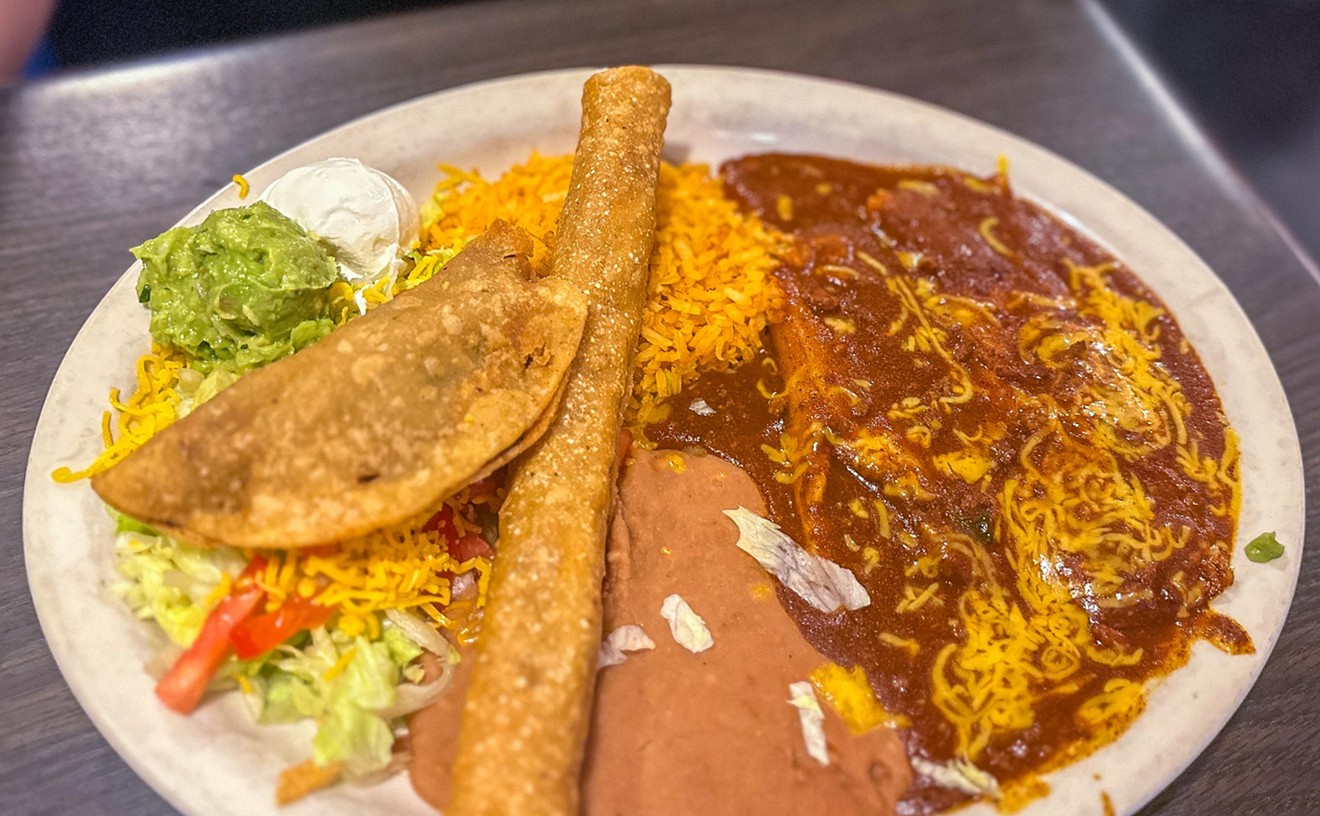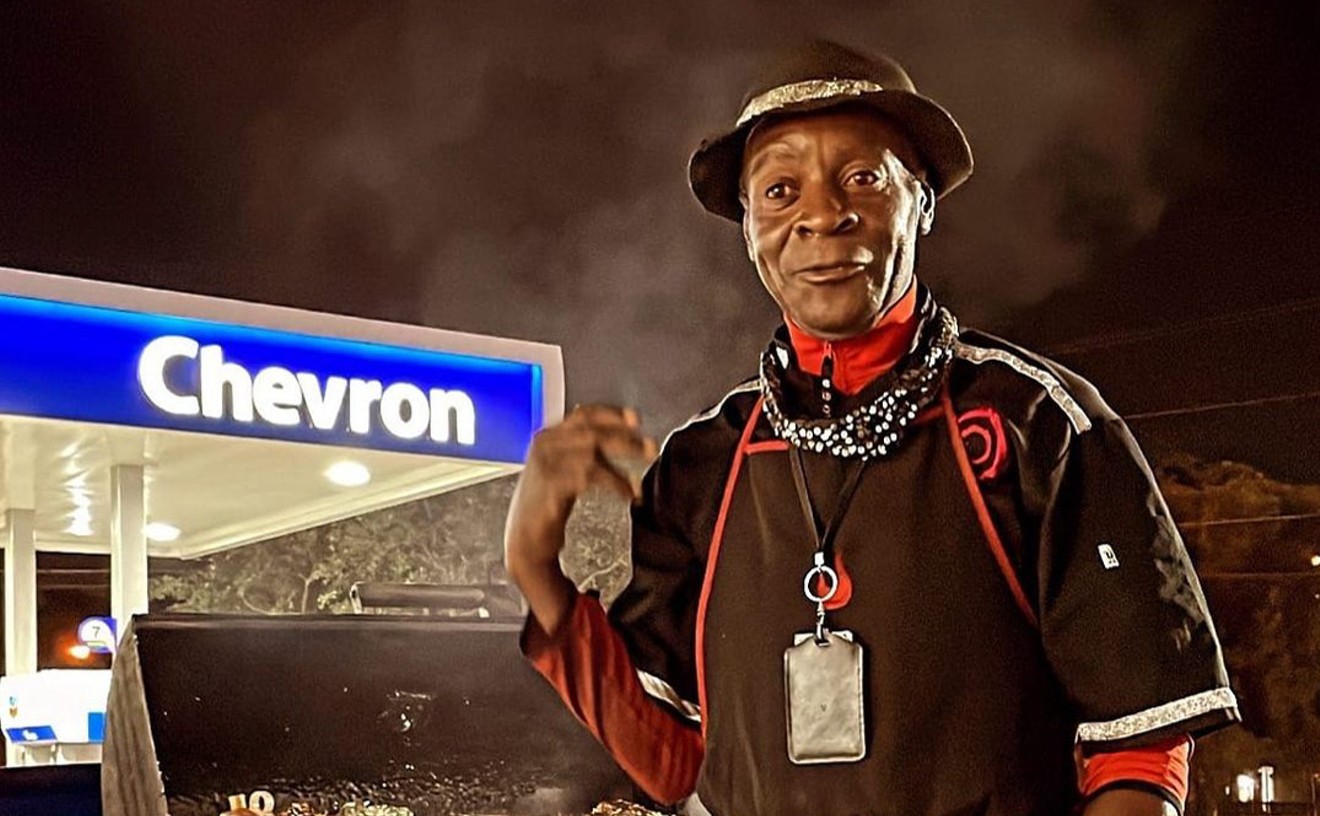Our faults are many: We refuse to stuff ourselves into Speedos; we regulate our lives with air conditioning and fail to keel over by the thousands when temps top the 90 mark...make that the 30 mark; we shovel down mass-produced slop at dinner rather than lingering over entrails and garden pests; we douse our pomme frites with ketchup instead of the more proper mayonnaise--and we refer to them as french fries.
Oh, and worst of all, we prefer a cold beer when lounging by the pool on a hot summer day.
"In Spain you see a lot more men drinking white, sparkling wines," says Katrin Naelapaa, who has an Estonian name but directs Wines From Spain out of an office in New York. "It's generally very refreshing."
Now, we've always wanted to sip chardonnay at a George Strait concert or shout, "Hey, merlot man!" to a vendor at Ameriquest Field. It's just that wine takes too much thought for a lazy summer afternoon, making people timid and uncertain. Oh, they know some of the rules: Big jugs are just wrong outside of Oklahoma; boxed wines wronger...make that more wrong...um, also wrong (the mention of Oklahoma made us lose control of grammar for a moment); drink red with steak; no white zinfandel; and so on. But such things as vintages, varietals, terroir and food-pairing options are confusing as hell.
It's just easier to pop open a Bud Light.
Yet there's no reason why a bottle of fermented grape juice should frighten us. It's really an everyday beverage, suitable for picnics, movies, ballgames. Hemingway even sloshed the stuff from wineskins while fighting in the mountains of Spain. The real question is this: Are wines compatible with a Texas summer?
"With hot summer weather, you want wines that are clean, refreshing and crisp," explains Daniel Ha, wine director at Nana. That means stainless steel fermented white Burgundys, New Zealand sauvignon blancs and German Rieslings. Or Chablis.
"Ernest and Julio Gallo ruined Chablis for people because they think of it as a jug wine," says Todd Lincicome, wine director at Al Biernat's, "but it's fantastic for summer."
Naelapaa suggests cava, a sparkling wine, for days when the thermometer threatens to blow its top. "It gets pretty damn hot in Spain," she says, "and they drink a lot of it. If you're drinking beer, there's no reason you wouldn't have a cava." We interviewed her after downing a dozen or so samples, by the way, and repeatedly referred to her as either "Napoleon" or "Chameleon," depending on our various consumption levels. Eventually she asked that we drop the formalities and call her Katrin, but that somehow came out as "Cat Pins" in our notes.
"When summer comes, people automatically think white," Ha points out. Certain red wines, however, pair well with a sweltering sun. "If you choose red, you want something with a lot of vibrant fruit, very forward."
Something akin to a cold glass of Kool-Aid, in other words.
Wine directors suggest zinfandels (not the dreaded "white" version) and syrahs. Just avoid the highly tannic reds.
Perhaps the best wine for a day in the West Nile-infested outdoors is a rosé. Yep, a pink wine, the kind favored by many Europeans during the summer months (which explains a lot, actually).
"It's kinda taboo in Texas," says Tim Permenter of Best Cellars. "A lot of people think novices drink rosés."
He blames the jaded image of white zinfandel, a light and horribly sweet drink associated with underage drinkers, for the lack of interest in pink wines. Naelapaa points a finger at male attitudes. "That's the problem with Texas men," she complains. "You got this macho thing going. People who are confident in their wine drink rosé when appropriate."
But won't rosés lead to...um...shrinkage?
Not so, Permenter says. To produce rosé, winemakers rip the skin from red grapes in a masculine process and toss it aside--a very American thing. Perhaps the discarded skin ends up as grappa or some other tough-guy drink. The remaining stuff is subjected to the same process as whites, yielding a faintly colorful, often crisp wine. "You still get a hint of red wine flavor," he notes, "but it's cool and refreshing."
And it makes you feel good about those tight Speedos, too. May even help them fit better.
Why not just buy a good, manly red and throw in a few ice cubes?
"It's acceptable if that's what you like," Lincicome says, although he says this after a lengthy pause, suggesting (after squelching the urge to throw us physically from the restaurant, which he couldn't really do because he sips the occasional rosé) we pick up a cheaper and less refined wine.
"If it's not the best wine, the ice might soften the bite and improve it."
The thing to remember is this: Wine has always been an every-occasion drink. We tend to fret too much over pairing and complexity when a good, serviceable table wine will always satisfy. There was a heyday, a few decades ago, when American winemakers advertised their product as common and fun, using fat guys with old-world names or brightly costumed nuns. Vineyards in this country were, after all, just emerging from the damage wrought by Prohibition, which shuttered production facilities and diluted drinking sophistication. Nowadays, we use the stuff to impress.
Yet many wines match perfectly with a day of yard work or a day spent lounging by the pool. "You're seeing a wine culture that's still developing," Ha says. "You can pop a bottle of Bud Light, but you can also pop a bottle of Perseco. It's just as enjoyable and more complex."
And it contains more alcohol. Now how's that for sophistication?










